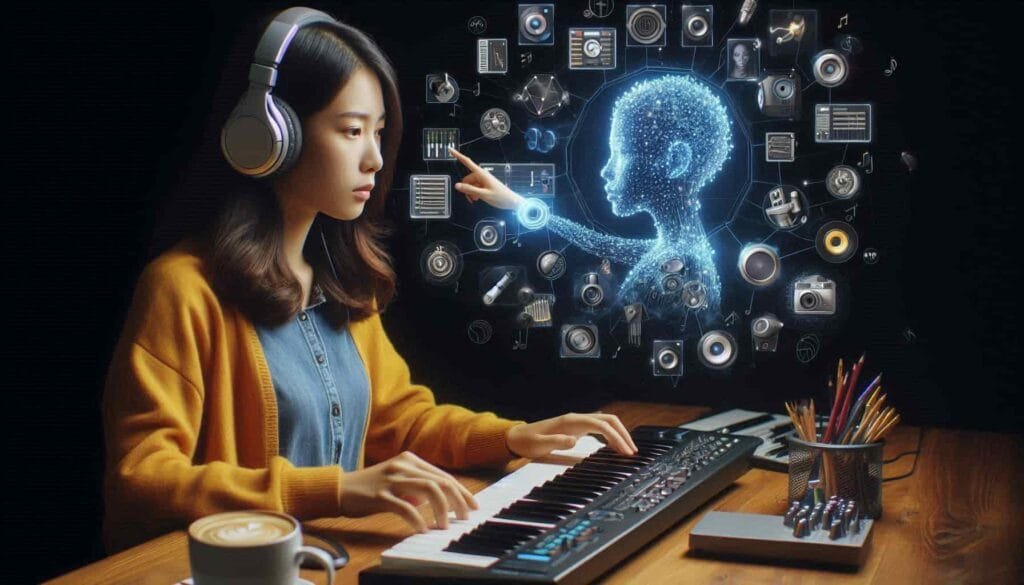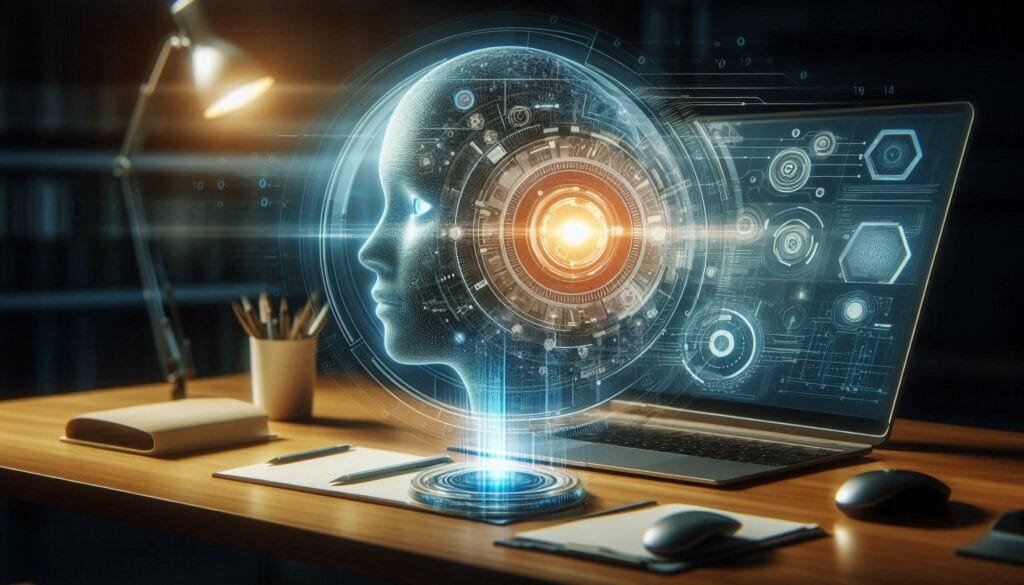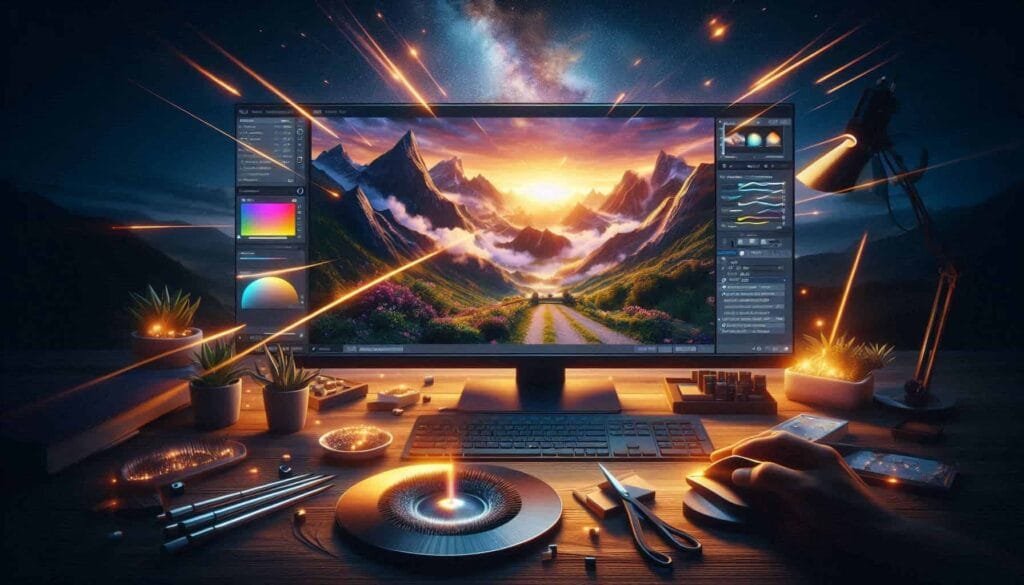
Artificial intelligence (AI) in music has revolutionised the business and given artists fresh tools and chances to improve their originality and simplify production methods. From songwriting and arrangement to marketing and business chores, AI helpers created for musicians can support everything. Examining both its creative and pragmatic uses in the music industry, this paper investigates the several ways artificial intelligence may be a useful friend for artists.
What is an AI Assistant for Musicians?
Music industry artificial intelligence assistants are meant to support artists in several spheres of their profession. These instruments might create melodies, offer mixing and mastering help, function as practice partners, and suggest lyrics. Advanced algorithms examine musical patterns, identify trends, and synthesise often indistinguishable music from human-created content. These instruments provide musicians an easily available means to explore new creative domains and maximise production processes as they keep developing.
Read Also: FFXIV Start Screen 3D
Benefits of Using an AI Assistant for Musicians
AI assistance can greatly boost musicians’ output and inventiveness. AI lets musicians concentrate more on the elements of music that really mean most to them by automating tedious chores and offering fresh inspiration sources. These instruments are dependable, relentless collaborators in the music-making process, time-saving devices, and means of increasing creative possibilities.
Songwriting Assistance
AI as a Collaborator in Songwriting
Though every musician experiences creative block, songwriting is an art form sometimes requiring inspiration. AI systems can assist by suggesting chords, rhythms, or even lyrics, therefore generating fresh ideas that might not have emerged naturally.
Lyric Generation and Melody Creation
By providing rhyming ideas or even whole verse creation depending on themes and styles chosen by the artist, artificial intelligence can help with lyric generation. Analysing several genres and offering original melodic patterns that fit the artist’s vision can similarly help with melody development.
Music Composition and Arrangement
How AI Aids in Music Composition
Apart from songwriting, artificial intelligence can help to compose generally by creating harmonies, bass lines, and accompanying instrumentation portions. By suggesting adjustments in tempo, key, or chord progressions, AI-powered tools give musicians a virtual partner who aids in creative refinement.
Orchestrating and Arranging Music with AI Tools
AI can help individuals creating complex or symphonic arrangements arrange instruments and polish structure. AI-driven software examines the current arrangement or composition and recommends improvements to provide the work more complexity and richness.
Audio Mixing and Mastering
Role of AI in Sound Engineering
Essential steps in creating polished music are mixing and mastering; artificial intelligence systems can help artists in this technical process. By analysing frequency, volume, and spatial factors, advanced algorithms can make recommendations or changes to attain a harmonic blend.
AI-Driven Mixing and Mastering Platforms
Using artificial intelligence, platforms like LANDR and eMastered simplify the mixing and mastering process, providing musicians with a fast, premium alternative for sound engineering that can be reasonably priced and available to individuals with less technical knowledge.
Music Theory and Education Support
AI as a Tutor for Music Theory
AI-powered tutoring tools give individualised lessons and feedback for artists wishing to expand their grasp of music theory. These instruments can let players move through ideas and exercises at their own speed, adjusting to their degree of learning and ability.
Personalized Learning Through AI for Musicians
For self-taught musicians, artificial intelligence enables highly tailored learning opportunities. Learning music theory is made simpler and more accessible by apps like Yousician and Simply Piano, which utilise artificial intelligence to evaluate development, offer real-time comments, and recommend practice sessions.
Collaboration with Other Musicians
AI-Driven Platforms for Connecting Artists
In music production, cooperation is a great instrument; artificial intelligence may help artists all around to connect. AI-powered platforms match artists with like tastes or styles, therefore facilitating the search for appropriate partners for next projects.
AI as a Virtual Studio for Remote Collaborations
Musicians can engage in distant partnerships with artificial intelligence that feel like they are working out of a shared studio. AI helps with real-time audio processing, file sharing, and synchronising so that remote partnerships go as smooth as they might.
Improving Performance Skills
AI as a Practice Partner
As virtual practice partners, AI-powered apps can provide artists customised workouts to hone their abilities. These programs can examine the musician’s performance, track their playing, and provide direction on technical improvement.
Analyzing and Improving Technique with AI
The capacity of artificial intelligence to track performance elements lets artists keep an eye on their development and pinpoint areas needing work. AI can, for instance, offer comments on dynamics, pitch accuracy, and timing, therefore enabling musicians to realise their best potential.
Generating New Sound Textures and Effects
AI’s Role in Sound Synthesis
AI shines at sound synthesis, allowing artists to explore novel textures and effects—perhaps not possible with conventional instruments. Original sounds created by tools like Amper Music and AIVA can turn already-existing tunes into whole fresh auditory experiences.
Experimenting with New Sound Textures
AI enables musicians to creatively manipulate and change sounds, therefore offering a practically limitless range of textures and effects to give their songs depth.
Personalized Marketing for Musicians
Targeting Audiences with AI Insights
In the music business, one’s audience has to be known. By helping artists grasp listener demographics, preferences, and interaction patterns, AI-powered analytics can enable them to more easily customise marketing plans to properly reach their target audience.
Creating Promotional Content with AI Assistance
By analysing patterns, generating interesting headlines, and streamlining posts on social media, AI systems can enable musicians create promotional materials. These instruments give artists the means they need to properly promote their work without sacrificing time for their trade.
Managing Business Tasks Efficiently
Streamlining Administrative Work with AI
Artists can use artificial intelligence to track music releases, budget, and handle administrative chores including performance planning. This enables artists to concentrate on their creative activities free from becoming mired in documentation.
Scheduling, Budgeting, and Tracking Releases
AI helps artists manage income and expenses, create budgets, and schedule releases. Through careful treatment of these logistical aspects, artificial intelligence releases artists from administrative responsibilities and supports their sustained music career.
AI as a Tool for Musical Inspiration
Breaking Creative Blocks
Common for artists are creative blocks; artificial intelligence might inspire them by implying fresh ideas or adding surprising features into compositions. AI techniques offer a unique viewpoint that might inspire a musician once again.
Generating Ideas and Experimenting with Styles
The capacity of artificial intelligence to analyse and create across genres helps musicians to explore many styles and concepts, therefore stretching their artistic capacity.
Limitations and Ethical Considerations
Ethical Issues Surrounding AI in Music
Artificial intelligence in music begs moral issues like originality, authorship, and the place of human creation. Understanding these problems and applying artificial intelligence sensibly would help musicians to honour the integrity of their work and the art form.
Potential Impact on Human Creativity
Although artificial intelligence is a great tool, it should augment rather than replace human ingenuity. Artists have to make sure AI enhances their creative vision rather than takes front stage.
Conclusion
AI assistants for musicians provide a broad range of tools to help at every level of the music making process. From marketing and commercial chores to composition and mixing, artificial intelligence helps artists to concentrate on what they do best: making and distributing music. Thoughtfully used, artificial intelligence can be a great friend on a musician’s path, enabling them to reach hitherto unattainable degrees of efficiency and inventiveness.
FAQs
- How can AI help with songwriting?
Acting as a cooperative collaborator for musicians, artificial intelligence can provide chords, melodies, and lyrics. - Is AI good for beginners in music?
Indeed, AI systems can offer tailored learning opportunities, which will help novices pick up theory and technique more easily. - Can AI improve my instrument skills?
Indeed, AI-powered apps may evaluate your performance, give comments, and offer practice sessions customised to your degree of expertise. - What are some ethical issues with AI in music?
Issues of authorship, originality, and the possible influence on human creativity form ethical questions. - Is AI replacing human musicians?
No, artificial intelligence is meant to enhance musicians’ creativity and simplify chores, therefore supporting rather than replacing them.


